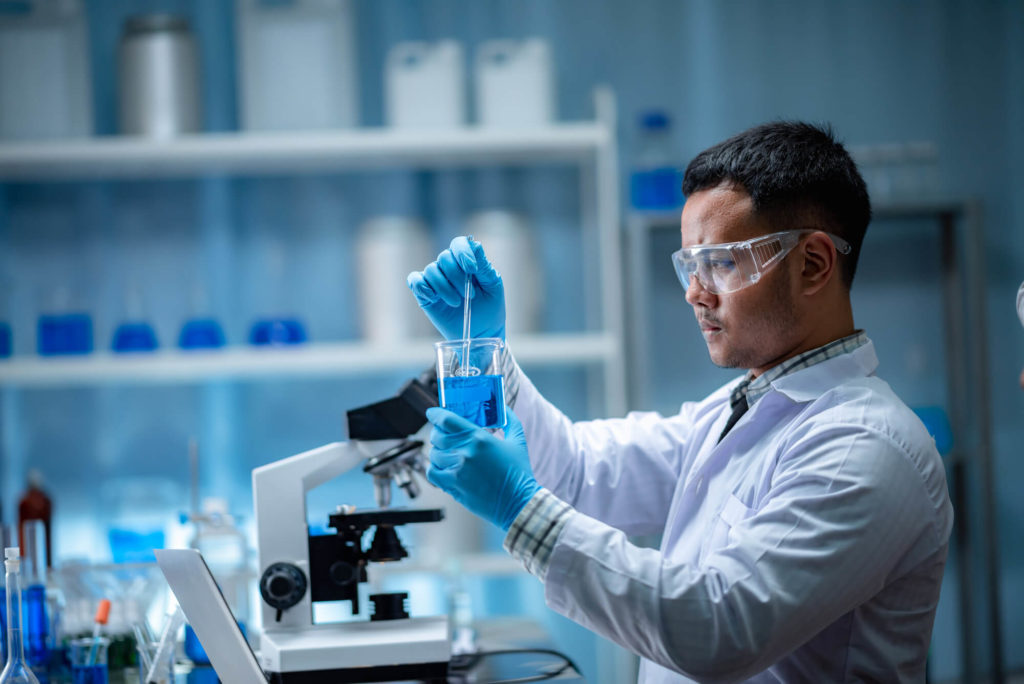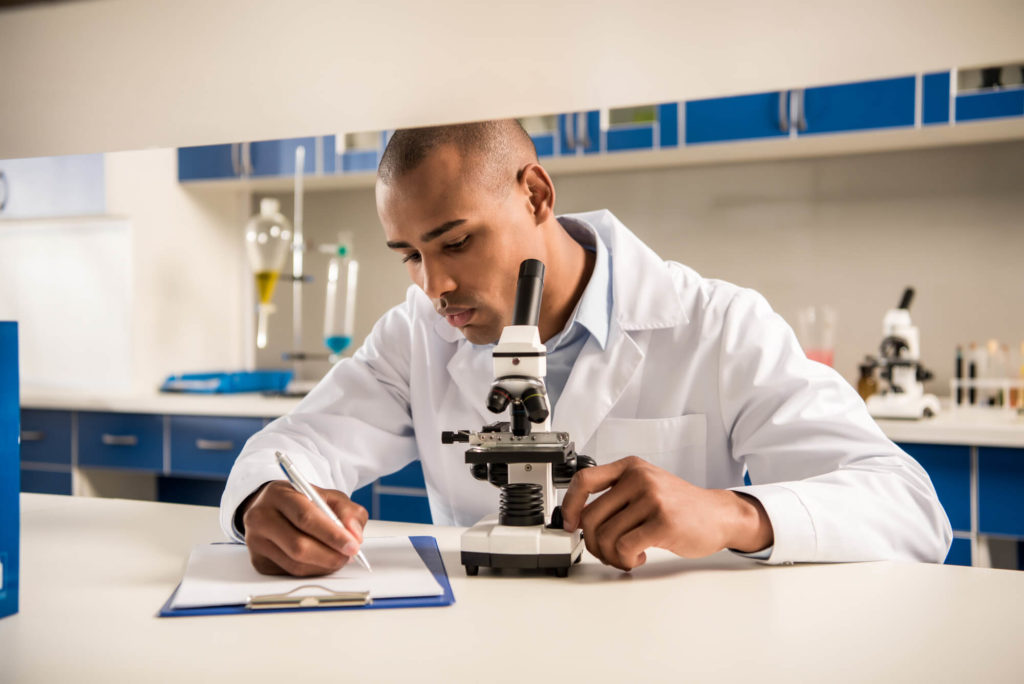In the field of laboratory technology, there is a significant demand for qualified individuals, which means there are prospects for advancement and travel all around the world. As a result, the fact that it is a popular topic of investigation in the field of biomedical research should not come as a shock to anyone.
The gathering of samples is one of the tasks that fall under the purview of a laboratory technician. In addition to that, you will have the opportunity to study for and direct examinations.
The core of a laboratory technician's work involves biochemical fluids, chemical compounds, and various other organic substances. Just thinking about it gives you a tingling sensation all over your body.
When seeking a position as a laboratory technician, a bachelor's degree is typically preferred by employers; but, in most cases, an associate's degree will suffice.
To support you in getting started in your new career, I have included an example work description for the position of lab technician below.
A lab technician at both government and healthcare diagnostic facilities does patient samples, like skin scrapings and bodily samples which are collected and analyzed by a laboratory technician. These samples can come from a variety of sources. For specimen analysis, they perform their work under the direction of a medical practitioner, a laboratory manager, or a laboratory technician.
The results of these studies are utilized by medical professionals to diagnose ailments and formulate treatment strategies.

Tests of a diagnostic, technical, and mechanical nature are under the purview of the laboratory technician. Laboratory workers could be employed either by a lab technician working alone or by a laboratory professional.
It is their responsibility to guarantee that scientific research is carried out accurately and successfully, to maintain equipment in the laboratory, to keep the laboratory organized, and to collect data. The work done by the laboratory technicians is held to the highest possible standards and guidelines

There are various career path options for a lab technician some of them are;
The vast majority of entry-level careers in clinical laboratories require either certification or a license to work in the field. In addition to collecting blood samples from patients, phlebotomists often collect samples of urine and saliva from the patients they work with. Transportation of specimens as well as preparation of samples for laboratory examination
Students who take an introductory biology course learn that cells are the fundamental units of all forms of life on Earth. Although a large number of these biology students with an inquisitive nature have the intention of pursuing careers in biological sciences, very few do so.
It is the responsibility of "cell detectives" like cytotechnologists, often known as "cell detectives," to search within cells for indications of disease, such as cancer.
Cells can be harvested from patients in several different ways, including by scraping, aspirating, or harvesting cells by spontaneous shedding. Cytotechnologists who examine cervical test data can discover cancer cells in other parts of the body if they have found cancer cells in one part of the body. They are real and can be found.
The knowledge and experience that dental laboratory technicians possess are invaluable to orthodontic and dental practices. These suppliers fulfill orders placed by dental practitioners for their patients for crowns, bridges, and dentures.
Dental practitioners write prescriptions for their patients. Dental impressions are also used to make dental bridges. These instruments are modified in the dental laboratory to conform to the requirements outlined by the dentists.
Medical laboratory technologists (MLTs), who work in a fast-paced environment, can be a good fit for people who are interested in working in an environment with a similar tempo. Infectious disorders such as AIDS, tumors, insulin, and many more can be diagnosed by technicians with only an associate's degree.
It is not uncommon for histo-technologists and medical laboratory technicians to collaborate more closely with one another. MLTs are often required to perform duties that are subordinate to those of a lab manager or medical technician.
Histo-technologists are experts in the field of researching the microscopic structures of biological material, in addition to its structural and functional relationships. This area of study encompasses a diverse range of academic disciplines, including morphology, metabolism, chemistry, and cell genetics.
You will conduct research, analyze samples, and present your results to peers in academia and industry, just like in the other MLT specializations.
Patients are required to go through a series of complex diagnostic procedures. Maintains, fixes, and diagnoses laboratory equipment. The Clinical Lab Technician is in charge of the workers in the laboratory. To work as a clinical laboratory specialist, you will need to complete extra training and earn certification.
Becoming an anesthetic technician could be a good career option for you if you appreciate working with equipment and being part of a team that is responsible for the treatment of patients.
This position contributes to the maintenance of high standards of anesthetic care for patients by assisting the anesthesiologist in the performance of their duties. Examples of this kind of testing include examining the quantities of medications that are given to patients as well as ensuring that the equipment used for administering anesthesia is functioning correctly.
In your capacity as an anesthesia technician, you will be expected to collaborate with both other members of the surgical team and the patients themselves.

The BLS reports that the average annual salary for a Lab Technician in the United States is 36,764 dollars.
After obtaining more schooling and working in the field for some time, you can be promoted to team leader or lab supervisor. Workers in laboratories may also choose to specialize in more intricate analysis. Those who are qualified for senior research responsibilities include those who have academic degrees in addition to significant experience in the field.